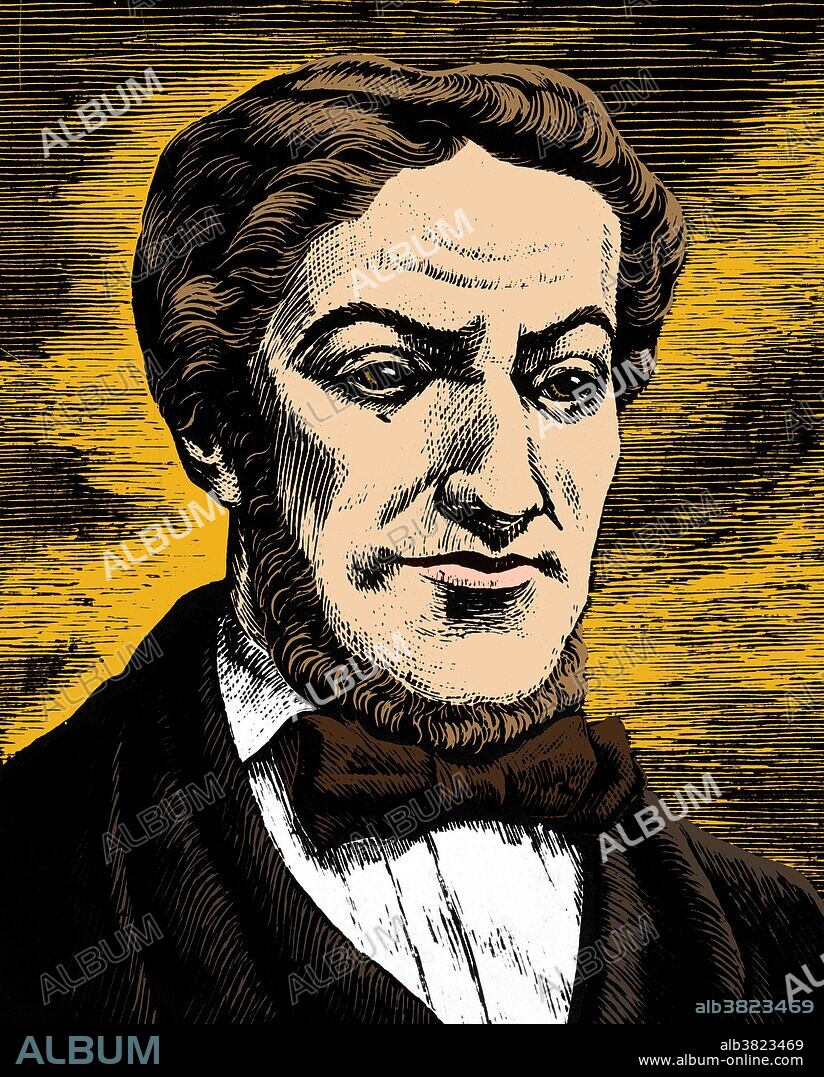alb3823469
John Fitch, American Inventor

|
Añadir a otro lightbox |
|
Añadir a otro lightbox |



¿Ya tienes cuenta? Iniciar sesión
¿No tienes cuenta? Regístrate
Compra esta imagen

Título:
John Fitch, American Inventor
Descripción:
Ver traducción automática
John Fitch (January 21, 1743 - July 2, 1798) was an American inventor, clockmaker, and silversmith. The era of the steamboat began in America in 1787 when John Fitch made the first successful trial of a steamboat on the Delaware River on August 22, 1787, in the presence of members of the Constitutional Convention. He was granted a patent on August 26, 1791, after a battle with James Rumsey, who had also invented a steam-powered boat. Unfortunately, the newly created Patent Commission did not award the broad monopoly patent that Fitch had asked for. It also awarded steam-engine-related patents dated that same day to James Rumsey, Nathan Read, and John Stevens. The loss of a monopoly due to these same day patent awards led many of Fitch's investors to leave his company. While his boats were mechanically successful, he no longer had the financial resources to carry on. His legal dispute over state monopoly rights with Rumsey and others helped bring about the enactment of the first Patent Act of 1790. Despite his obscurity among other American inventors and engineering pioneers his contributions have not been forgotten and has been remembered with a number of memorials and namesakes. He died in 1798 at the age of 55.
Crédito:
Album / Science Source
Autorizaciones:
Modelo: No - Propiedad: No
¿Preguntas relacionadas con los derechos?
¿Preguntas relacionadas con los derechos?
Tamaño imagen:
2500 x 3108 px | 22.2 MB
Tamaño impresión:
21.2 x 26.3 cm | 8.3 x 10.4 in (300 dpi)
Palabras clave:
1743 • 1787 • AMERICA • AMERICANO • ARTE • BARCO A VAPOR • BARCO DE VAPOR • CIENCIA • COLOREADA • DIBUJO • ESTADOS UNIDOS DE AMERICA • ESTADOS UNIDOS • FAMOSO • FIGURA • GENTE • GRABADO • HISTORIA • HISTORICO • HOMBRE • HOMBRES • ILUSTRACION • IMPORTANTE • INVENTOR • MASCULINO • MEJORA • OBRA DE ARTE • PERSONA • PERSONALIDAD • PERSONALIDADES • RETRATO DE HOMBRE • SIGLO XVIII
 Pinterest
Pinterest Twitter
Twitter Facebook
Facebook Copiar enlace
Copiar enlace Email
Email
